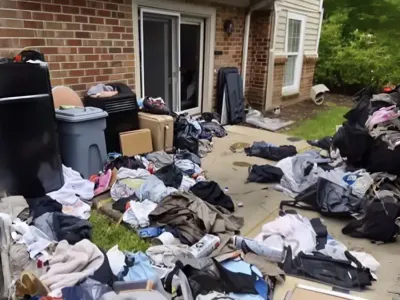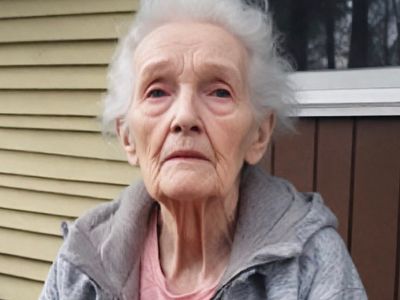My Sister Secretly Put Our Parents in a Nursing Home & Tried to Sell Their House Behind My Back but I Turned the Tables on Them
I always thought family was supposed to mean something—that blood outweighed anything else, whether it was money or ambition. That was the belief I was raised with. Mom and Dad had poured their sweat and energy into running a small convenience store on Cherry Street, working tirelessly just to give Emily and me a chance at college and a better future. It wasn’t anything extravagant, but I loved helping out after school. It felt good to contribute to something that provided for us and covered the cost of our education.
But Emily? She didn’t see it that way. While I spent time behind the counter, she was off with her trendy friends or partying like she was above it all. She was embarrassed by the store, by our “poor parents.” When they reminded her that the shop was the reason we had everything we did and that it helped them save for our futures, Emily would snap back, “Who said I wanted that?”
I wish I could say she matured over time, but even now, Emily saw herself as the center of the universe—radiant and superior, with the rest of us merely orbiting around her. Still, when I had to leave for a two-week business trip, she was my only choice to check in on our parents.
I found her at her usual spot—a high-end bar, sipping a cocktail while scrolling through her phone. The bartender stood nearby, clearly used to catering to her every whim.
“You want me to do what?” she sneered, barely looking up. “I have meetings all week. They’re fine on their own.”
“They’re not fine,” I argued. “Dad forgot his heart medication twice last week. Mom’s arthritis is worsening. They need someone to check on them.”
She rolled her eyes so dramatically I thought they might get stuck. “God, you’re so dramatic. They ran that store for three decades. They can manage without your constant hovering.”
“Emily, come on. It’s just two weeks. Drop by every few days, make sure they’re eating and taking their meds. That’s all I’m asking.”
Something changed then. A slow, syrupy smile crept across her face. “Fine. You know what? You’re right. I’ll handle it.”
I should have known better. Emily being cooperative was never a good sign. But she was my older sister, and I wanted to believe she would do the right thing.
Two weeks later, as soon as I got back, I drove straight to my parents’ house. It wasn’t that I didn’t trust Emily—actually, it was because I didn’t trust Emily. I needed to see for myself that everything was okay.
But the moment I pulled into the driveway, my stomach dropped. No car. No lights. No one answered the doorbell. The house was empty.
With trembling hands, I called Mom’s cell. When she answered, her voice sounded distant, uncertain. “Oh, sweetheart. We’re at Golden Acres now. Emily said it was for the best… that we couldn’t live alone anymore. I thought you knew.”
Golden Acres. That run-down nursing home on the outskirts of town. The same one that had made headlines last year for neglect and unsanitary conditions. The place where people were sent to be forgotten.
I hung up and sped to Emily’s condo, barely containing my rage. When I burst inside, she was sprawled across her expensive sofa, surrounded by paperwork.
She didn’t even blink.
“You had no right!” My whole body shook. “They trusted you! I trusted you!”
She smirked, utterly unfazed. “Relax. They’re fine. Besides, I already have buyers lined up for the house. It’s time to move on.”
“That’s their home, Emily. They raised us there.”
She waved a dismissive hand. “Oh, please. You’re always so sentimental. As if we had some perfect childhood.”
I stepped closer, ready for another exhausting argument.
Then I noticed what was on her coffee table—not work files, but real estate listings. And the price? It made me sick.
Emily hadn’t just dumped our parents in some cut-rate facility. She was trying to profit off their house.
I wanted to scream. To grab her and shake some sense into her.
But I knew Emily. Confrontation would only make her dig in her heels. If I wanted to stop her, I had to be smarter.
So I took a slow breath and forced myself to stay calm. “You know what? You’re right. Maybe selling is the best idea.”
Her eyebrows shot up in surprise.
“In fact,” I went on, “I might have a buyer in mind.”
I explained that one of my clients—a private investor—was always looking for properties in good neighborhoods. He had plenty of cash and hated dealing with banks.
Emily’s eyes gleamed. “Really? How much are we talking?”
“Let me make a call. But Emily? He moves fast. As in cash-in-hand fast.”
“Even better,” she practically purred. “Time kills deals, after all.”
My “investor” was actually Robert, a real estate attorney I knew. When I pitched my plan, his eyebrows nearly disappeared into his hairline—but in the end, he agreed.
The night of the sale, Emily threw a signing party. She wanted all her friends there, a big celebration of her “win.” She picked out expensive wine, a catering service, and even hired a photographer to document her triumph.
She worked the room in a stunning red designer dress, completely in her element.
Robert waited until everyone had gathered, wine glasses full, eyes on the deal being sealed.
“Before we finalize this,” he said smoothly, “I need to clarify something.” He pulled out a thick folder. Emily’s grin widened, probably expecting more good news.
“I ran a legal check,” he continued, his voice carrying through the hushed room. “And this sale is completely invalid. The house was never legally transferred to you. Your parents’ signatures were obtained under misleading circumstances—meaning this deal is fraud.”
Emily’s face drained of color. “T-That’s not true! The papers—”
Robert slid the documents across the table.
“These prove your parents still own the house. And since you manipulated them into leaving under false pretenses, this qualifies as elder abuse and financial fraud. Both state and federal crimes, by the way.”
A murmur rippled through the crowd. Her friends started whispering.
“You LIED to your parents?” someone gasped.
“You tried to STEAL their house?” another voice echoed.
Emily opened her mouth, but no words came out. The flawless mask she always wore cracked, revealing raw panic underneath.
And then Robert added the final blow: “By the way, the bank has been informed. Your accounts are frozen. Good luck seeing a dime from this.”
She collapsed into a chair, mascara streaking her cheeks as her guests abandoned her. One by one, they left, leaving behind half-empty glasses and an air of judgment so thick it was suffocating.
Even the photographer kept taking pictures. I didn’t stop him.
That night, I brought our parents back home. Mom cried when she saw her neglected garden. Dad stood in the kitchen, running his hands over the countertops, as if making sure it was real.
When they learned what Emily had done, they pressed charges. She lost everything—her job, her social circle, her reputation.
A week later, my phone rang. Emily’s name appeared on the screen.
“Please,” she whispered. “I need help. They’re pressing criminal charges. I could go to jail.”
I laughed. “Time to move on, right?”
Then I hung up. And it was the most satisfying sound I had ever heard.
Now, when I drive by my parents’ house, I see Mom in her garden, Dad on the porch with a book. The grass is green again. The roses are blooming.
Emily never calls anymore. And that’s fine. Some things, once broken, are better left that way.





